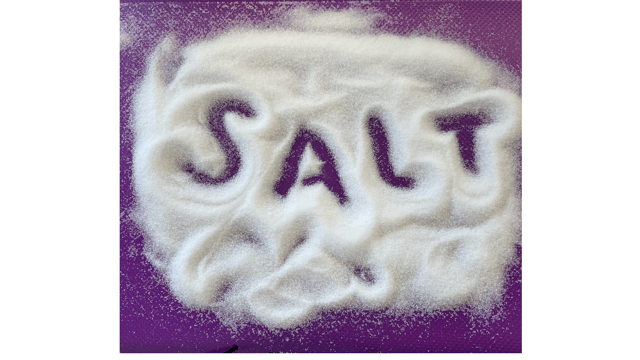NORMAL salt intake is required by the body to maintain homeostasis (equilibrium) but the common salt contains two elements, sodium (Na) and chlorine (Cl).
High dietary sodium intake coupled with low dietary potassium intake leads to an increase in blood pressure levels, and exposes the body to risks of stroke, cardiovascular diseases, and even death.
Join our WhatsApp ChannelWhile the intake of sodium in the form of salt may not affect some people drastically but for others especially those diagnosed with hypertension, it leads to elevated blood pressure.
Sodium and potassium are both electrolytes required by the body to transmit electric charges when dissolved in blood; but a low dietary potassium intake causes hypokalemia with symptoms ranging from diarrhoea, vomiting, cramp, to abnormal heart rhythms.
According to a study conducted in China by the Salt Substitute and Stroke Study (SSaSS), replacing 100% sodium chloride (NaCl) in diets with a combination of sodium chloride and potassium chloride (KCl) reduces the risk of stroke in people with high blood pressure.
In the study which started between 2014 and 2015, nearly 21,000 people from 600 villages in China took part. Subjects had either previously suffered from stroke or were of age 60 years and above.
Participants were given free salt substitute containing 75% sodium chloride and 25% potassium chloride, and were in addition asked to use the salt substitute sparingly than they would with regular salt.
Participants in control villages continued their usual habits (i.e. they continue to use normal salts in their meals compared to the test villages who were using the salt substitute).
The study which lasted for five years and is recently published in The New England Journal of Medicine, found that replacing salt with a low-sodium alternative lowers the risk of stroke in people with high blood pressure and in those that have suffered mild stroke by 14%, risk of any other major cardiovascular disease was reduced by 13%, and those taking the salt substitute were 12% less likely to die of any other cause (i.e. premature death).
While the study was not comprehensive enough, for example, the effects of various percentages of sodium chloride-and-potassium chloride combinations were not done, and neither were possible occurrences of hyperkalemia (excess potassium in the blood) monitored in the test subjects; but it did point to a possible health benefit of replacing the normal salt with a substitute or at least cutting down on the amount of salt one takes.
















Follow Us